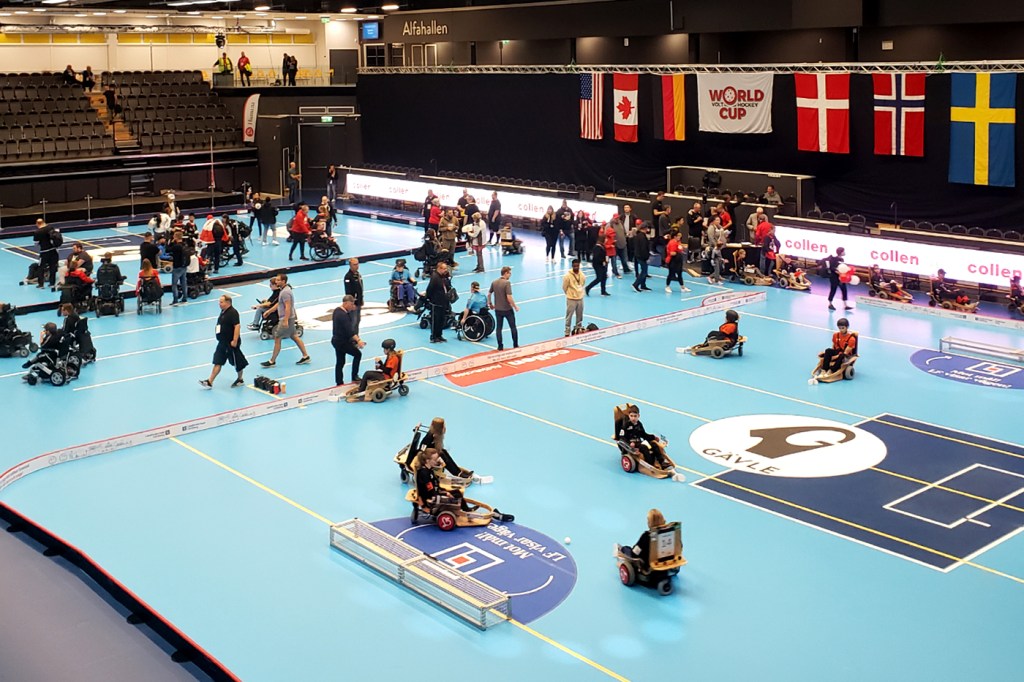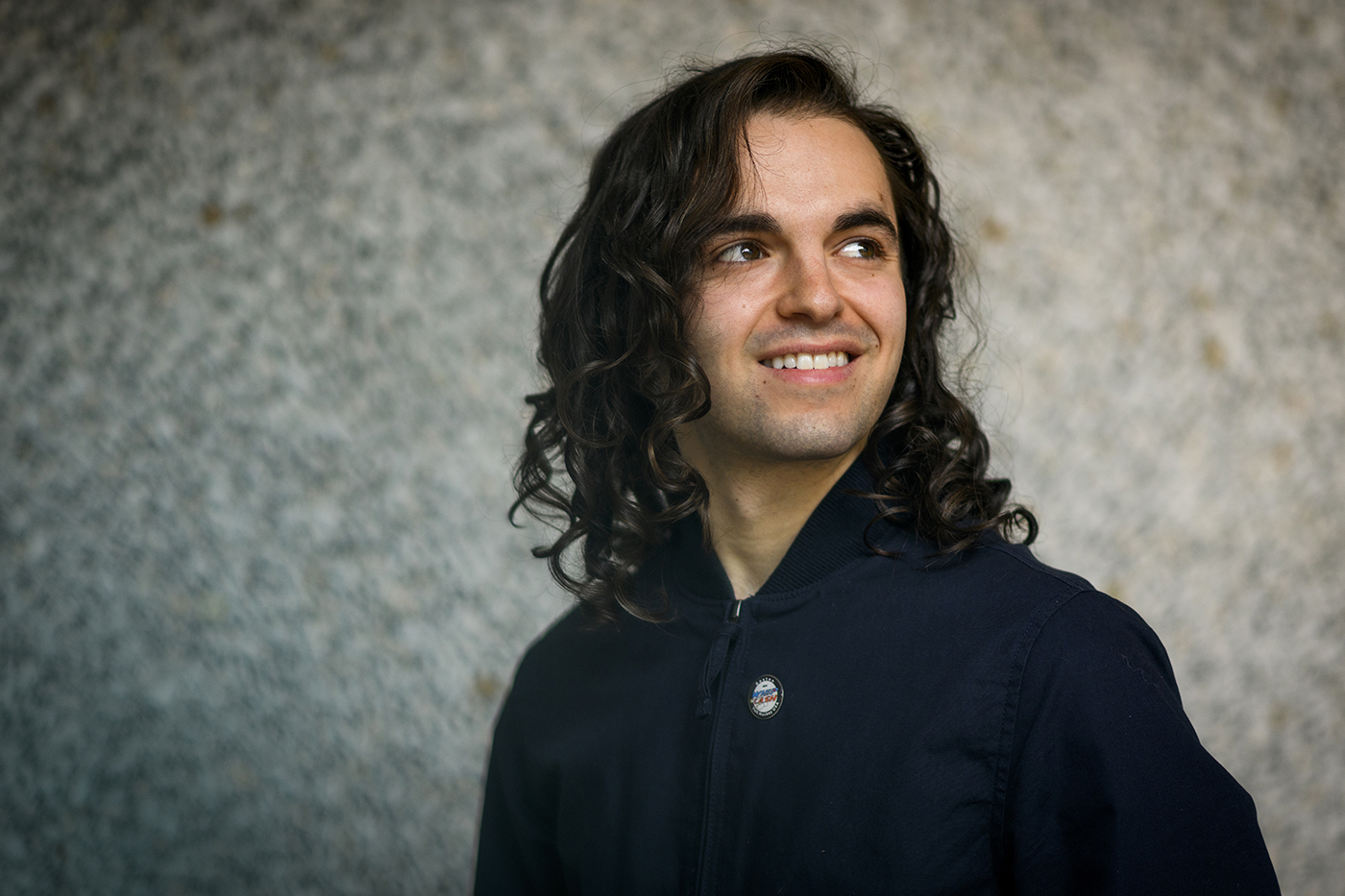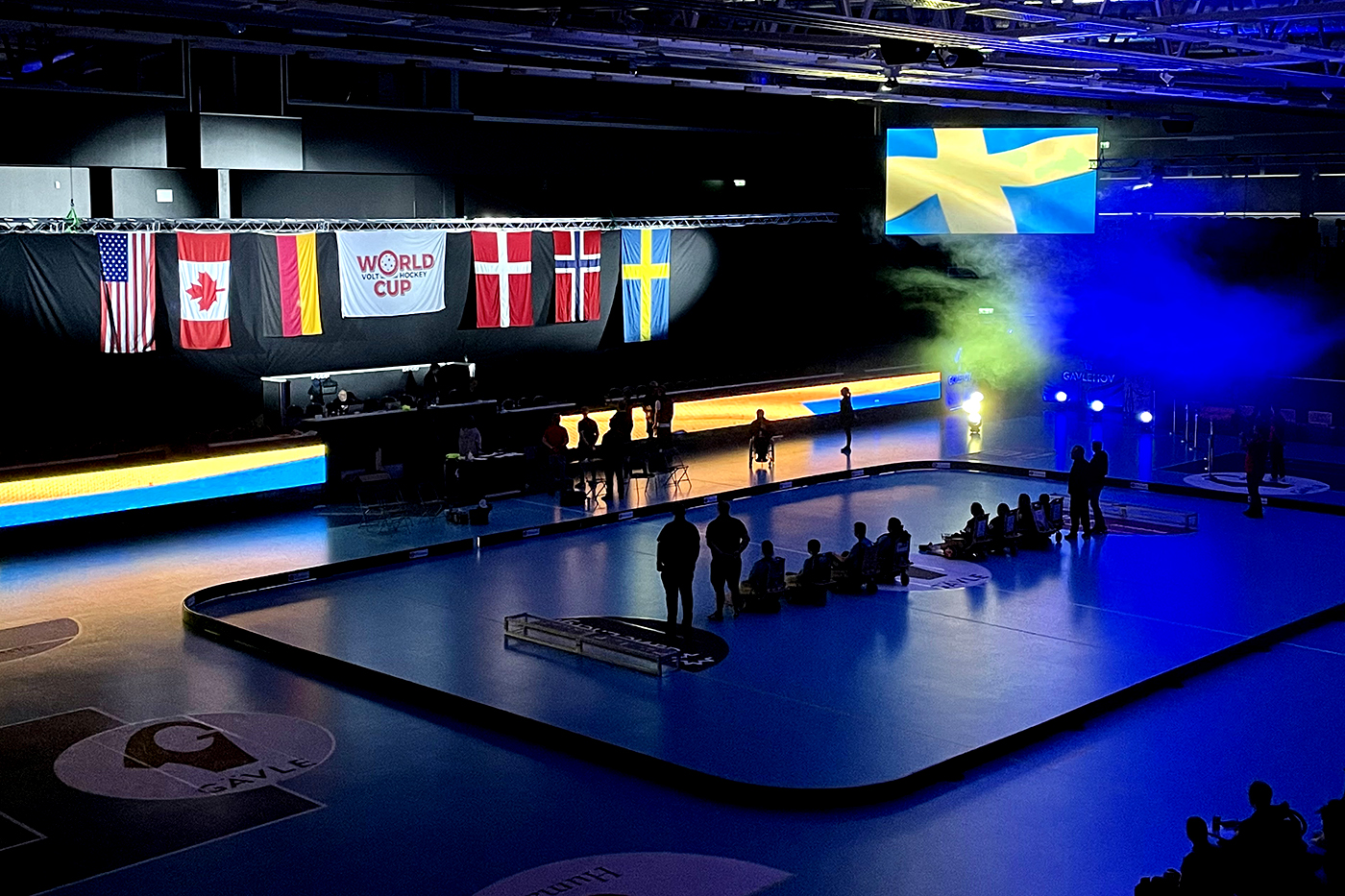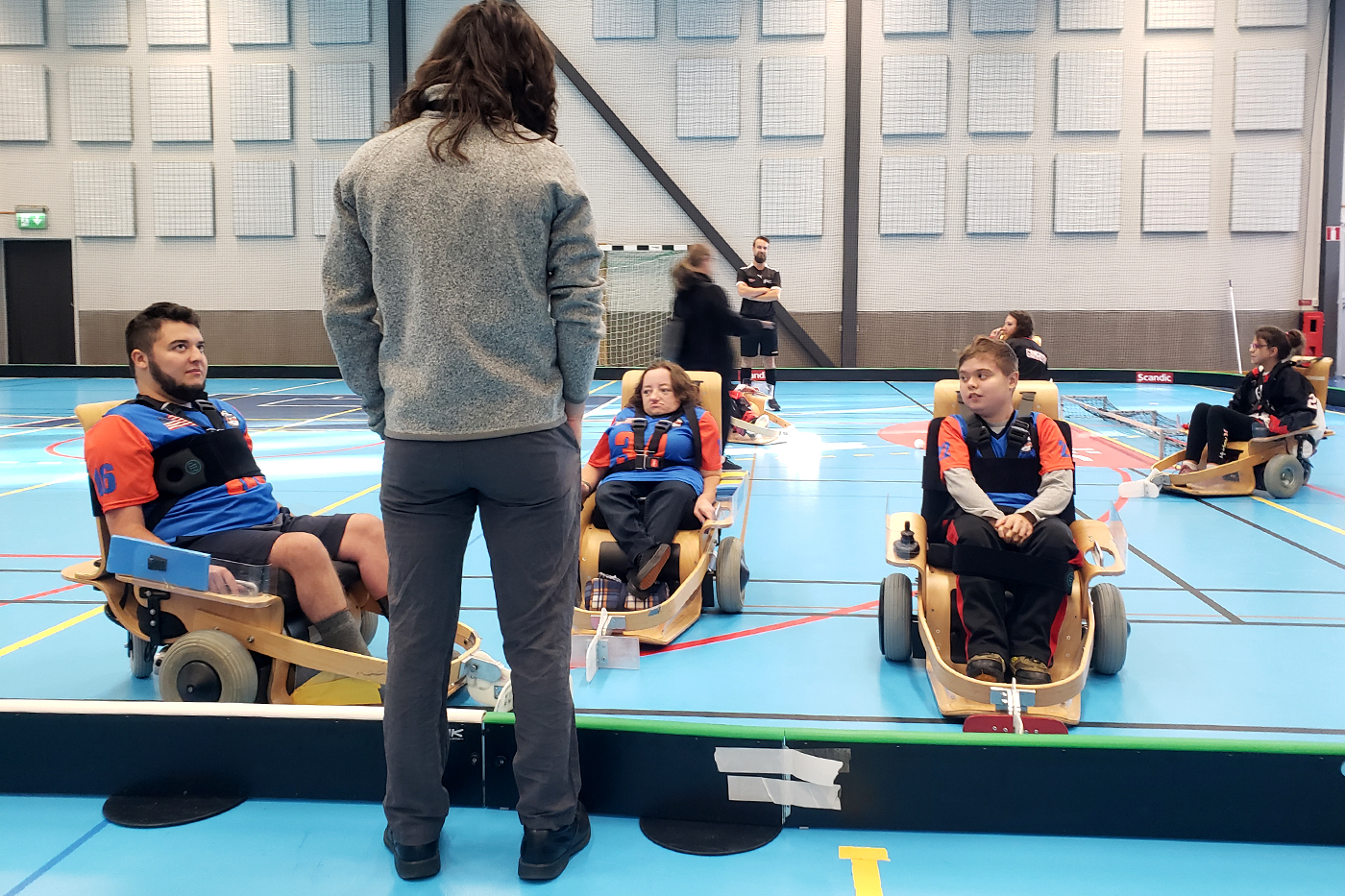Northeastern student helps launch new sport for people with disabilities in Boston

Dylan Hogan knew nothing of volt hockey one year ago. Last month in Sweden, the Northeastern pre-med student found himself coaching an inspired team of players in wheelchairs at the sport’s inaugural World Cup.
“It turned out to be an amazing experience all around,” says Hogan, a fourth-year biology major. “The players all really enjoyed it, and they learned so much from the start of the tournament to the end.”
Volt hockey, a sport new to North America, is played by people with disabilities in specially-designed electric wheelchairs made of wood and fashioned with a paddle at the front end for controlling a ball. Teams of three players each compete to score goals while maneuvering their chairs by joystick at speeds of up to 10 miles per hour.

Hogan was introduced to the sport in a roundabout way last fall while taking an honors course, Contemporary Issues in Health Care, taught by Lorna Hayward, a Northeastern associate professor of physical therapy, movement and rehabilitation sciences. To fulfill the community service obligation of the class, he was assigned to Boston Self Help Center (BSHC), a nonprofit organization run by and for people with disabilities and chronic illnesses.
Since 2012, the BSHC has been sponsoring the Boston Brakers team in the sport of power wheelchair soccer, in which players with disabilities seek to advance and score a large ball. The success of that venture encouraged Kim Damato, a BSHC board member whose family operates the New England firm Rehabilitation Equipment Associates, to secure $61,000 to acquire a half-dozen volt hockey chairs.
Hogan took charge of the nascent volt hockey program, known as the Boston Whiplash. More than 30 potential players showed interest in trying the sport.
“At the first practice, the players were introduced to how to maneuver the chairs and how to play the game,” Hogan says. “Five of the players that we brought to Sweden first met at that event.”
World Cup organizers in Sweden heard of the interest developing in Boston and invited the Whiplash to compete in the inaugural World Cup Sept. 16-18. Hogan took on the complex challenge of arranging the trip, which impressed Hayward.
“Dylan organized the flights and other travel logistics for a team of seven people with wheelchairs,” says Hayward, who over the years has led more than 215 physical therapy students on international service trips to Ecuador, China and Mexico. “International travel is ordinarily difficult to navigate and currently made more so by COVID precautions. For the volt hockey group, the process was further complicated by additional factors of traveling with gear, wheelchairs used for daily mobility and personal luggage.


“Dylan is both impressive and inspirational in his desire and ability to execute this trip to the World Cup while maintaining a full course load this fall,” Hayward adds. “Dylan is an exemplary student and leader and also demonstrates humility in his efforts.”
Hogan and Amanda Bell, a Northeastern senior in data science and behavioral neuroscience who volunteered to help, traveled with the team by train and van from Boston to Newark for a nonstop flight to Stockholm—26 hours in all. In Gävle, a small coastal city where 22 teams from six countries competed, the lone U.S. entry was welcome with gratitude.
“What struck us was just how supportive everyone was,” Hogan says. “The sport is centralized in Scandinavia—most of the teams are from Norway, Denmark and Sweden—and I think they see our involvement, as well as Canada’s, as potential for huge growth. They know that if it gets to the U.S., it could really blow up.”
The Whiplash went 1-5 in the tournament, highlighted by a 7-1 win over an opponent from Alberta, Canada. Watching the more experienced teams was a revelation, Hogan says.
“We had been just guessing how the game was played,” he says. “But once we saw it being played, it was just so different. We thought passing would be a main part of the game. But the other coaches were telling us that one person might score all the goals, that it’s not uncommon to have a primary ball-handler and the rest of the team is just trying to set up the one player with blocking schemes.
“So our whole strategy shifted and you saw huge improvement.”
Parents told Hogan that they could see the players—ranging in age from 15 to the early 30s—enjoying themselves.
“A couple of our players have been playing power wheelchair soccer for 10-plus years, and they said they were considering switching sports to this new one,” Hogan says. “It shows how much it meant to them and how much they want to pursue it.”
Hayward is hoping the success of the Whiplash program will help lead to the creation of a volt hockey team at Northeastern. She was recently awarded a grant from the university’s Institute for Health, Equity and Social Justice. Hogan is serving as an intern for her project to not only create a team but also measure its impact on the players.
“There are so many benefits of adaptive sports,” says Hayward, referring to sports that are modified to enable participation by people with disabilities. “The grant will allow us to collect some physical metrics—like biometrics, heart rate and blood pressure—to see if it increases with the activity. There’s also the sense of belonging, of feeling connected in a group that is so important for mental health.”
In the meantime, Hogan believes the experience in Sweden will lead to higher goals for the Whiplash.
“We’re going to take a little breather,” he says. “And then in October we’re going to start things up again.”
For media inquiries, please contact media@northeastern.edu.






